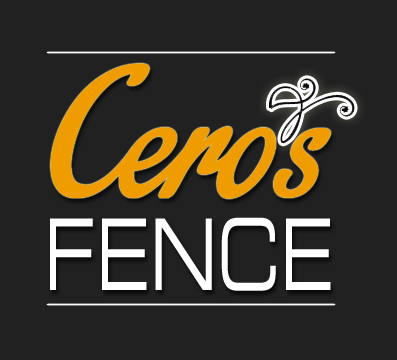Fences in coastal areas endure unique challenges due to exposure to salt air. Salt particles, combined with high humidity, accelerate corrosion and material degradation. By understanding these effects and adopting effective maintenance strategies, you can preserve your fence’s durability and beauty.
Why Does Salt Air Affect Fences?
Salt air carries moisture and microscopic salt particles that settle on surfaces, leading to faster wear and tear. Here’s how:
Salt Buildup: Salt deposits attract moisture, which accelerates corrosion in metal fences and weakens other materials.
High Humidity: Coastal humidity amplifies salt’s corrosive effects on fences.
Material Lifespan: Prolonged exposure reduces the lifespan of untreated or low-quality materials.
The impact of salt air can help you choose the right materials and maintenance strategies to protect your fence.
Best Fence Materials for Coastal Areas
Some fence materials are better suited for salt air environments than others. Here’s a comparison:
Aluminum Fences
- Naturally resistant to rust and corrosion.
- Lightweight yet durable, requiring minimal maintenance.
- Ideal for both residential and commercial properties.
- Explore aluminum fence solutions here: aluminum fence.
PVC Fences
- Non-corrosive and unaffected by moisture or salt.
- Available in various designs and colors to match any property.
- Easy to clean and maintain, making it a popular choice for homes.
Check PVC fence designs here: pvc fence.
Wood Fences
Susceptible to rot and warping but lasts longer with proper sealing.
Offers a classic aesthetic, ideal for residential properties.
Requires regular maintenance, including painting or staining.
View durable wood fence options here: wood fence.
Chain-Link Fences
Coated chain-link fences resist rust and corrosion better than bare metal options.
Affordable and functional for both residential and commercial properties.
Learn more about chain-link fences: chain-link fence.
Always opt for high-quality materials specifically designed to withstand salt air environments.
How to Maintain Fences in Salt Air Areas
Regular maintenance is crucial to protect your fence from the damaging effects of salt air. Follow these steps for optimal results:
Rinse Your Fence Regularly
Use fresh water to rinse off salt deposits at least once a month.
For stubborn stains, mix mild soap with water and scrub gently.
Apply Protective Coatings
Use rust-resistant paint or weatherproof sealant on metal and wood fences.
Reapply coatings every 2-3 years or as needed.
Inspect Your Fence Frequently
Look for early signs of rust, cracks, or warping.
Address minor issues immediately to avoid extensive damage.
Trim Surrounding Vegetation
Overgrown plants can trap moisture and salt, increasing damage.
Keep shrubs and trees trimmed and at a safe distance from the fence.
Tips for Salt Air Protection
Invest in High-Quality Hardware
- Use stainless steel screws, hinges, and fasteners to prevent rust.
- Regularly inspect hardware for signs of corrosion and replace as needed.
Create Wind Barriers
- Plant shrubs or build structures to shield fences from salt-laden winds.
- Natural barriers can also improve your property’s aesthetic.
Schedule Professional Maintenance
- Regular check-ups by fencing experts can extend your fence’s life.
- Professionals can spot and fix issues you might overlook.
Need expert help? Explore our residential fencing services: residential fences or check out our commercial solutions: commercial fences.
Why Hire Professional Fence Services?
Hiring a professional ensures your fence is designed, installed, and maintained to withstand salt air challenges. Benefits of working with experts include:
Material Selection Expertise: Get tailored recommendations for your environment.
Precision Installation: Proper installation reduces salt exposure and extends the fence’s lifespan.
Comprehensive Maintenance Plans: Regular maintenance preserves your investment.
Explore residential and commercial fencing options:
Contact us today at +13058878668 for customized fencing solutions.
Common Questions About Salt Air Fence Maintenance
Q: How often should I clean my fence near salt air?
A: Rinse it monthly with fresh water to remove salt deposits. For metal fences, consider applying a rust inhibitor.
Q: What is the best material for coastal fences?
A: Aluminum and PVC are highly recommended for their durability and resistance to salt and moisture.
Q: Can wood fences work in salt air environments?
A: Yes, but they require regular maintenance, including sealing and staining, to resist salt and moisture damage.
Q: What are the signs of salt air damage on fences?
A: Look for rust on metal fences, discoloration, cracks, or warping on wooden or PVC fences.
Final Thoughts
Salt air presents unique challenges for fences, but with the right materials, proactive maintenance, and professional assistance, you can protect your investment. Choose durable materials like aluminum or PVC, clean your fence regularly, and apply protective coatings to keep it in great shape. For tailored solutions, call us today at +1305-297-7179 or explore our services online. Protect your fence and enjoy long-lasting results!
